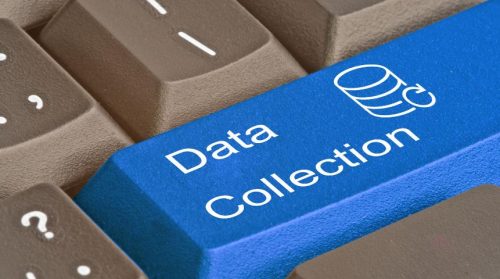Businesses rely on data collection to gain insights into customers’ needs and preferences, making it a valuable tool for creating personalised (and successful) marketing campaigns. However, dealing with customer data is no easy job and requires responsibility. Cybercrime doesn’t show any signs of slowing down, making it critical to protect your clients’ information. Bad actors can exploit any piece of data they find valuable (even the email address of your customers), so you need to take precautions to avoid the consequences of a cyberattack.
You could be wondering why protecting customer data is such a big deal. Well, it’s simple: the success of your business depends on it! If you don’t prioritise customer data protection, you can fall victim to hacks, lose consumer trust and face fines and lawsuits. The best example is Equifax – the company faced a data breach that led to a $4 billion loss and a bad reputation that lasted for a long time after the incident. This shows how catastrophic the effects of cybercrime can be for your business.
It even has legal implications, as the law protects people from unsafe data practices. If a data breach occurs and their personal information gets compromised, consumers can claim compensation – which is now very easy with resources like https://www.databreachcompensationexpert.co.uk/data-breach-compensation/ more accessible than ever. All these things considered, you can take steps to improve your consumers’ data security.
Securing customers’ data is a non-negotiable practice for any business
Only collect the data you need for marketing
There are two advantages of collecting just information valuable for your marketing efforts: reducing the data’s external value and boosting consumer confidence. Hackers aren’t interested in getting their hands on low-value data, so if they can only gain your email addresses, they may not consider it worth the effort.
 Plus, consumers place more faith in companies that don’t require unnecessary data. Hence, you want to think if a data point is necessary for your business operations or not. You should audit the data at least once a year to ensure you don’t end up collecting information you don’t actually need.
Plus, consumers place more faith in companies that don’t require unnecessary data. Hence, you want to think if a data point is necessary for your business operations or not. You should audit the data at least once a year to ensure you don’t end up collecting information you don’t actually need.
Provide transparency regarding data usage
It’s essential to have a clear data privacy policy in place that specifies who can access the data and how it is used. Make it public on your business website to let customers know how your organisation collects, stores and protects their information. Also, you should inform them whenever you make any adjustments to the policy. Being transparent will give customers peace of mind, making them more likely to trust your brand.
Restrict employees’ access to data
Why would you give access to your copywriters to the information that the product marketing team relies on? Not only is that unnecessary, but it also creates more points of vulnerability for your company. Each access point represents a weakness point that a hacker can exploit.
 Let’s say 25 users log into a data analytics tool. This translates into 25 points of vulnerability. And if one of the account’s passwords is weak, a brute-force attack can wreak havoc on the entire system. Therefore, you should give access to fewer employees, reducing potential cyber threats.
Let’s say 25 users log into a data analytics tool. This translates into 25 points of vulnerability. And if one of the account’s passwords is weak, a brute-force attack can wreak havoc on the entire system. Therefore, you should give access to fewer employees, reducing potential cyber threats.
Take advantage of password management tools
As mentioned previously, the login point is always a vulnerability. But the good news is that you can increase your cybersecurity and mitigate cybersecurity risks by leveraging password management tools. They are an incredibly effective security method, as they store complex passwords for the software used in your organisation. Complex passwords are hard to remember, which is why people usually refrain from using them. That’s where password management tools come in really handy, encrypting and storing all the passwords and allowing individuals to log in to a tool by using the information from the password manager. With a password manager, logins become more secure, keeping hackers away.
Use multi-factor authentication
To further increase protection, consider implementing MFA. This tool adds an extra layer of security by requiring an authentication factor besides a password. So, even if a cybercriminal steals a password, they won’t be able to log into the organisation’s account without the second factor. Since only authorised users have control of this factor, it’s very challenging for hackers to compromise it. MFA provides great usability and increased security while allowing your organisation to remain compliant with industry regulations, so it’s definitely a worthy investment.
Eliminate data silos
Storing your data in different places is bad for data analysis, but at the same time, it creates many vulnerabilities. You may store the data in unsecured applications or not be able to remember where you have stored it in the first place. But losing track of where your data is stored can make it difficult to tell that you’ve been breached.
 This is why you should break down data silos and create a customer data management strategy that will allow you to handle your data more effectively. A data tracking plan can also be useful, helping you keep a record of each customer’s information, thus making data collection audits easier.
This is why you should break down data silos and create a customer data management strategy that will allow you to handle your data more effectively. A data tracking plan can also be useful, helping you keep a record of each customer’s information, thus making data collection audits easier.
Embracing customer data protection can help your business thrive
Business ethics are no longer just an oxymoron, as they once used to be. Nowadays, consumers seek brands that make ethical choices, whether that means investing in green tech or prioritising employee wellbeing. Consumers will always choose brands whose actions align with what they preach, so if you market yourself as a company that protects customers’ data, that should be reflected in everything you do.
Users have become increasingly concerned about how their data is used, so how you handle this aspect can make or break your business. By implementing solid data privacy policies, you can boost your brand’s reputation and develop a sense of loyalty among your customers. This will positively impact your company’s bottom line in the long run. With so many security tools at their disposal, businesses have no excuse when it comes to protecting customer business data. And taking into account the significant impact of a data breach – and how difficult it is to recover from one – it only makes sense to put in the effort and safeguard customers’ personal information.





































